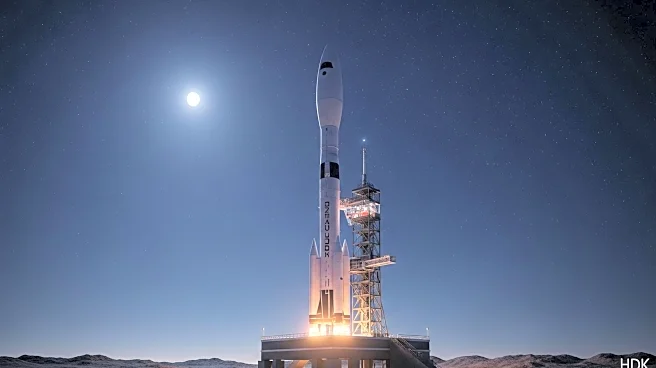What's Happening?
Blue Origin is preparing for the second launch of its New Glenn rocket, which will carry NASA's ESCAPADE mission to Mars. The launch is now expected to occur in late October or early November, following delays from an initial schedule set for September 29. The ESCAPADE mission, consisting of twin smallsats named Blue and Gold, aims to study the Martian space weather environment. The spacecraft were initially shipped to Florida in August 2024 but returned to California due to launch vehicle readiness issues. The mission is part of NASA's Venture-Class Acquisition of Dedicated and Rideshare contract, allowing flexible launch windows.
Why It's Important?
The ESCAPADE mission represents a significant step in understanding Mars' space weather, which is crucial for future manned missions to the planet. The successful launch and operation of the New Glenn rocket are vital for Blue Origin's plans to expand its launch capabilities, with ambitions to conduct multiple launches per month by 2026. This mission also highlights the growing role of private companies in space exploration, supporting NASA's objectives and potentially reducing costs and increasing innovation in the sector.
What's Next?
Following the launch, the ESCAPADE mission will utilize flexible trajectories to reach Mars by 2026, allowing it to launch virtually any day this year. Blue Origin plans to build a fleet of boosters and upper stages to support frequent launches, which could enhance the company's competitive position in the commercial space industry. The success of this mission could lead to more collaborations between NASA and private companies, further advancing space exploration efforts.
Beyond the Headlines
The ESCAPADE mission's flexible launch approach could set a precedent for future Mars missions, reducing dependency on narrow launch windows and potentially lowering mission costs. This flexibility might encourage more innovative mission planning and execution strategies, benefiting both scientific research and commercial interests in space.









